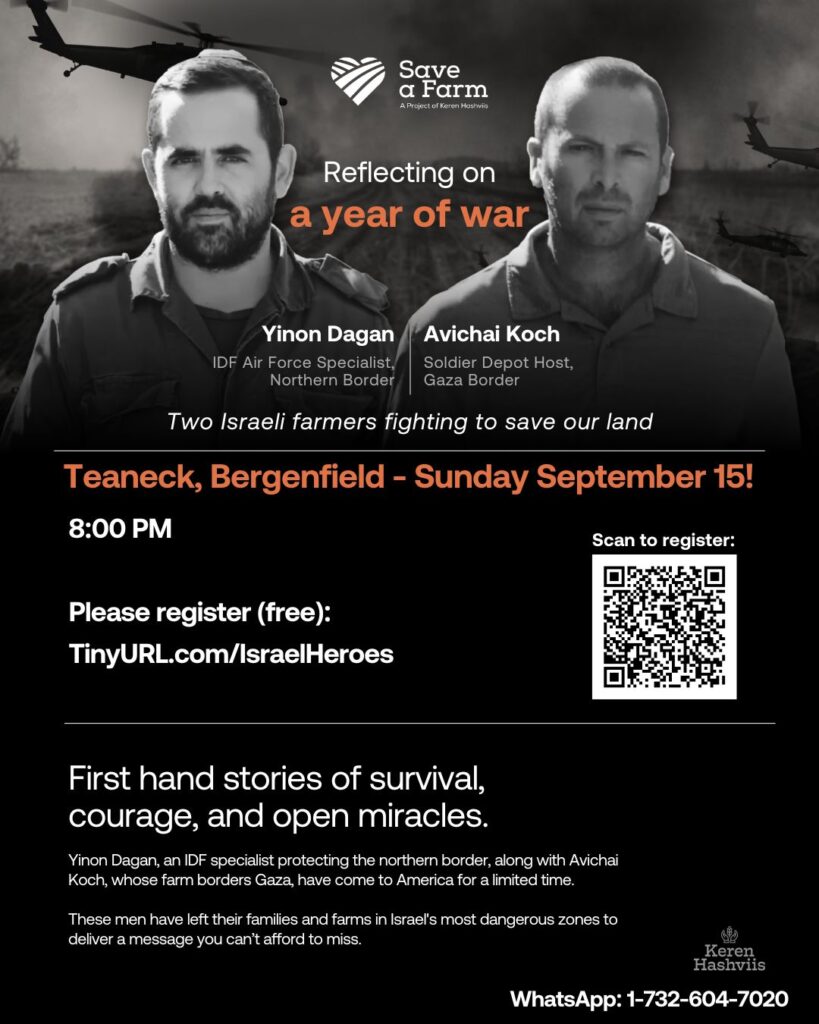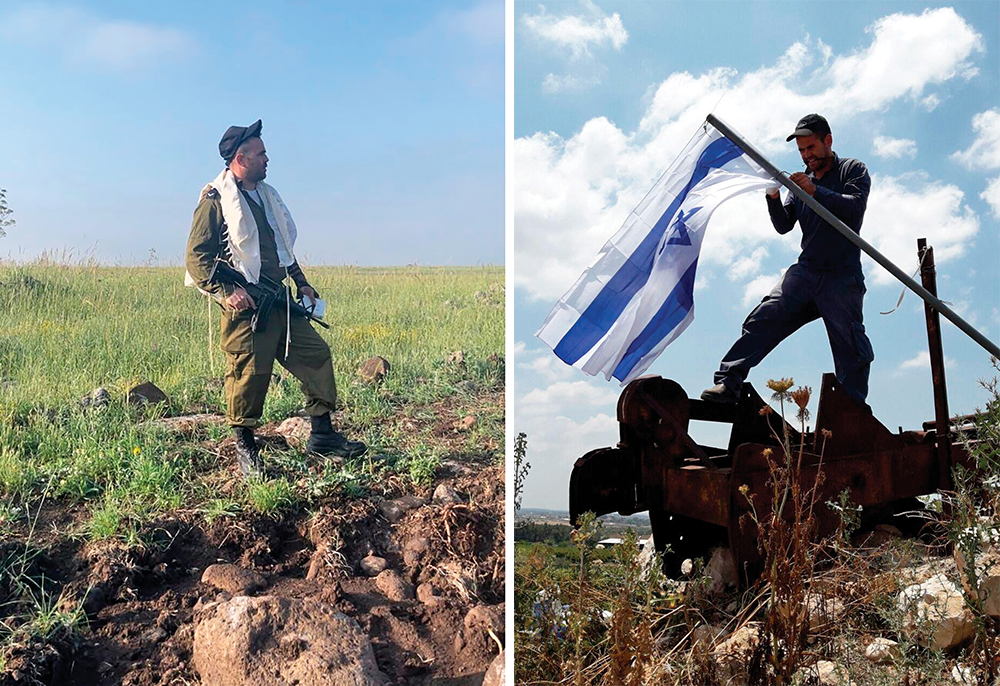
(Courtesy of Keren HaShviis) In the shadow of conflict, Israel’s agricultural heartland has transformed. Farmers, once solely focused on nurturing their crops, now find themselves nurturing a nation in crisis. Their stories of resilience and adaptation paint a vivid picture of a country where the lines between civilian and soldier have blurred.
The Koch Family: Passion Fruit to Provision Center
Near the Gaza border, Avichai and Keren Koch’s passion-fruit farm has become an unexpected lifeline for thousands of soldiers since October 7. Following the shemitah year, the Kochs had lovingly restored their fields, anticipating a bountiful harvest of the exotic fruit. Instead, they found themselves harvesting hope for a nation under siege.
The transformation began with a call from their son Erez, a paramedic thrust into the heart of the conflict. His report of equipment shortages among the influx of soldiers sparked a chain reaction. Keren began collecting donations for Erez’s unit, but word spread quickly, and soon their farm had evolved into a full-fledged military support center.
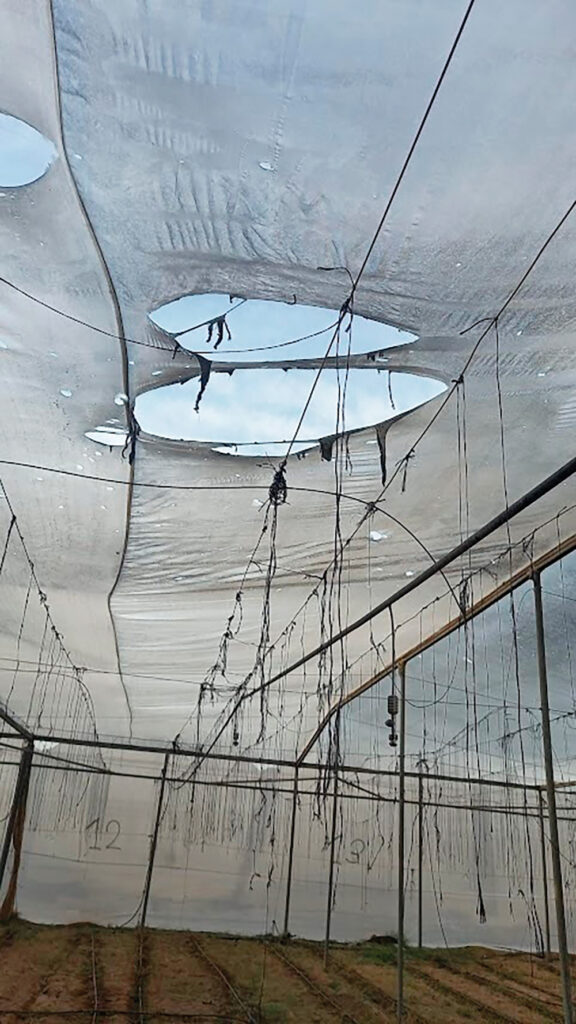
Today, the Kochs’ farm hosts a comprehensive warehouse of vital supplies, a bustling pizza kitchen, and even a meat kitchen housed in a donated tent. Their passion-fruit crop, once their pride and joy, now takes a backseat to the pressing needs of weary soldiers and surrounding villages.
“We never imagined our little farm would become such a crucial support system,” Avichai reflected. “But in times like these, you do what needs to be done.”
Inon’s Story: From Tomatoes to Wheat, Farmer to Defender
Further north, third-generation farmer Inon faces a different set of challenges. Post-shemitah, he had eagerly anticipated returning to his tomato fields, supplying produce to ketchup manufacturers. Instead, he found himself donning an air force uniform, called to protect the country from incoming missiles.
Inon and his wife, Ilana, had envisioned a simple life, raising their young family with a deep connection to the land. Now, Ilana grapples with a new reality as Inon serves in the IDF for months at a time, leaving the fate of their farm uncertain.
Faced with a labor shortage and unpredictable service commitments, Inon made the difficult decision to switch from tomatoes to wheat. “It’s not profitable,” he admitted, “but it keeps the fields alive. And right now, that’s what matters most.”
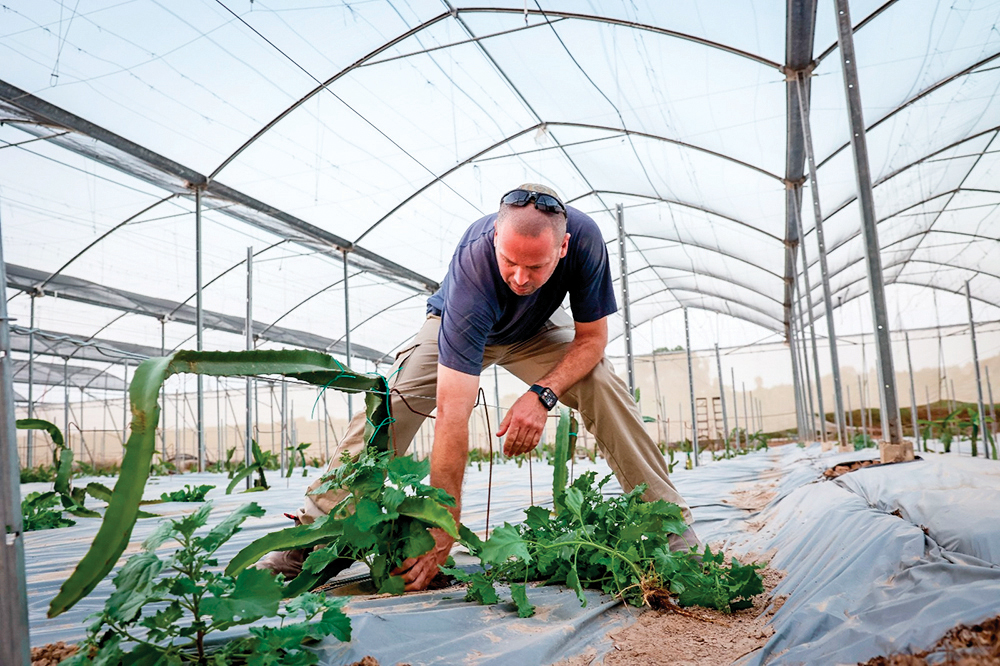
A Two-Front Battle
Both the Kochs and Inon face an additional, often overlooked struggle. Arab farmers, leveraging the chaos, are offering top dollar to buy out Israeli farmland. For these Israeli families, and many like them, their fields represent more than just a livelihood—they’re a legacy and a physical border defense against our enemies.
“We’re fighting two wars,” Inon explained, “one against external threats, and another to keep our land. Some of us wear uniforms, others refuse to leave our fields even under missile fire. This land isn’t just ours—it belongs to our entire nation. It is imperative that we keep these lands in our hands.”
A War Without Weapons: The Invisible War You Don’t Know We’re Losing
Hamas perpetrated “strategic agricultural terrorism”—systematically targeting farmlands, livestock, irrigation systems and infrastructure.
Many farmers left to serve in the reserves; most of the foreign workers fled to their home countries. Farms across Israel are struggling to survive, and some have defaulted on their lease payments. Arabs have approached them with cash, hoping to entice them to sell their leases. It’s working, and we’re losing the land we’re fighting so hard to protect.
Keren Hashviis, dedicated to sustaining farmers through shemitah, was one of the first organizations to step into action after October 7. They reached out to the farmers everywhere, assuring them: “Even though it’s not shemitah time, we cannot abandon you in your time of need. We are going to help.” Keren HaShviis immediately set up its “SAVE-A-FARM” campaign—an emergency stop-gap funding source.
Supporting our farmers means keeping the land in Jewish hands and maintaining our strong roots. Our farms are our first line of defense on the borders, so losing farmland is disastrous to the State of Israel, creating a massive security threat.
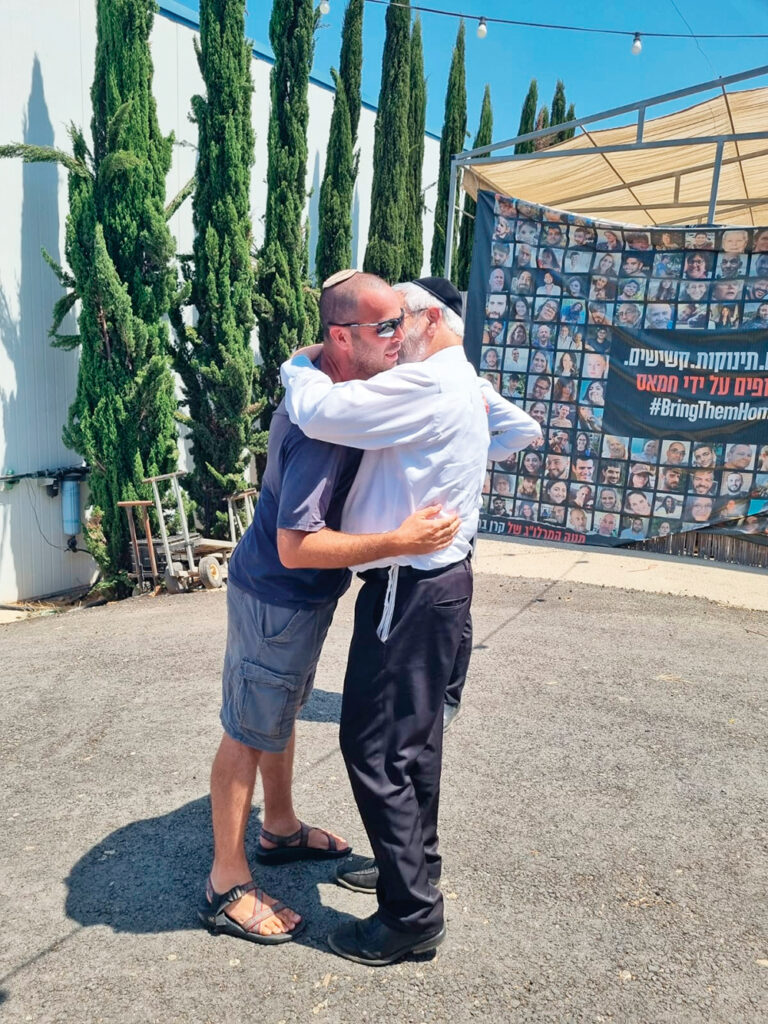
Cultivating Resilience
From the Kochs’ impromptu soldier support center to Inon’s strategic crop change, these stories highlight the extraordinary adaptability of Israel’s farming communities. In the face of conflict, they’ve expanded their role from feeding the nation to defending its very essence.
Come hear the full story. Meet these two heroes and learn of their challenges and how “SAVE A FARM” is changing the landscape by protecting Israel’s farms, food independence and border security, and doing everything we can to keep the land in our hands.
As missiles fall and uncertainty reigns, these farmers stand firm, rooted like the crops they tend. They remind us that in Israel, the distance between field and front line is often measured not in miles, but in moments of courage and commitment.
